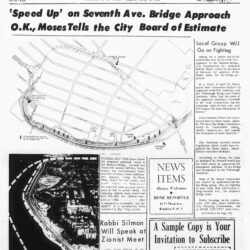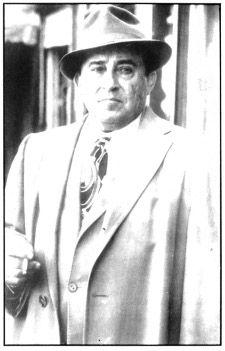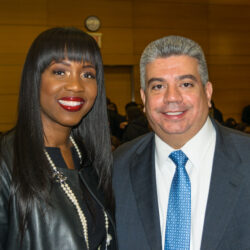
On This Day in History, April 25: Versatile to the Maximum

BROOKLYN — On April 25, 1930, Paul Mazursky was born Irwin Mazursky in the Brownsville section of Brooklyn where his grandfather owned a candy store which featured the best egg creams in the neighborhood. His grandfather was a scholar who read Tolstoy, Turgenev and Chekhov. Obviously, he had a lasting influence on his grandson since a respected movie critic once dubbed Mazursky a ‘Jewish Chekhov.’ Paul attended Thomas Jefferson High School and Brooklyn College where he acted in school plays. He began his career on the New York nightclub scene and took up residence in Greenwich Village. While still in college, he took a term’s leave of absence to act in the film Fear and Desire. This movie also marked the film debut of Stanley Kubrick, a former Look magazine photographer.
In 1955 Paul appeared as Emmanuel Stoker, a tough juvenile delinquent, in the hit movie The Blackboard Jungle. Later, he played bit parts in live TV shows and worked as a waiter in a health food store.
In the mid-’60s he wrote for TV series such as the sit-coms “The Danny Kaye Show” and “The Monkees.” Mazursky studied film production, gradually developed his directorial skills and became one of America’s most creative moviemakers. He directed Bob and Carol and Ted and Alice (1969), a now-tame study of middle-class sexual attitudes that seemed risqué at the time. He produced Alex in Wonderland (1970), a self-conscious romance and a 15-years-early model for “thirtysomething.” Harry and Tonto (1974) revived Art Carney’s career (following a bout with alcoholism) and earned him an Oscar as best actor for his role as an old man hitchhiking across America with his cat in search of an ending. Actually, Mazursky had written the role with James Cagney in mind, but Cagney was not interested. Fox studios wanted either Laurence Olivier or Frank Sinatra to play Harry. It was Mazursky who chose 55-year-old Carney, who happily put on old-age makeup for the part. The ‘Ed Norton’ of TV’s “The Honeymooners” said: “You don’t like going through life with your name synonymous with sewers.” Carney also said of the part: “Until the picture, I never liked cats, but Tonto is a helluva cat, never used a stand-in once.”
Next Stop, Greenwich Village (1976) celebrated not only Mazursky’s own roots in the coffee houses and clubs of the Village of the ’50s, but also that important wellspring of contemporary culture. An Unmarried Woman (1978), Mazursky’s greatest success of the ’70s (earning him an Oscar nomination as its writer), became a beacon of the women’s movement, with Jill Clayburgh winning an Oscar nomination for her depiction of a woman rebuilding her life after a divorce.
Willie and Phil (1980) deals with a contemporary love triangle, again set in Greenwich Village, which was still Mazursky’s home at the time. Tempest (1982), an audacious reworking of Shakespeare’s swan song, again attempted to depict the life of the artist. John Cassavetes starred and his own distinct viewpoint pervades the film.
Moscow on the Hudson (1984), a bittersweet portrait of a Soviet defector’s adaption to life in America, gave Robin Williams a chance to expand his repertoire in a study of contemporary migration. Down and Out in Beverly Hills (1986) is Mazursky’s version of the Jean Renoir classic Boudu Saved from Drowning. It marked Mazursky’s return to West Coast subjects after a 15-year hiatus. It was also his first real box-office hit in nearly as many years, proving perhaps that Beverly Hills lifestyles far out-sell Greenwich Village funk.
Moon Over Parador (1988) deals, less insightfully, with a parody of banana republic politics. Enemies, A Love Story (1989), much more ambitious, speaks eloquently of resilience, humor and passion in the shadow of the Holocaust in 1940s New York.
Versatile Mazursky not only has acted in his own films, but in those written, produced and directed by others. These include among others: A Star is Born (’76), History of the World, Pt. 1 (’81), Scenes from the Class Struggle in Beverly Hills (’89), Miami Rhapsody (’95) and Touch (’96).
Mazursky continues to act, and as did his contemporary and late colleague John Cassavetes, regards filmmaking as a family matter. Wife Betsy and daughters Jill and Meg have appeared in a number of his films, as has his psychiatrist, Donald F. Muhich. In 1990 Mazursky executive-produced his daughter Jill’s screenplay, Taking Care of Business.
Paul Mazursky has never forgotten his Brooklyn origins, and his films reflect the creative impulses that began to take root in a Brownsville candy store.
Leave a Comment
Leave a Comment


